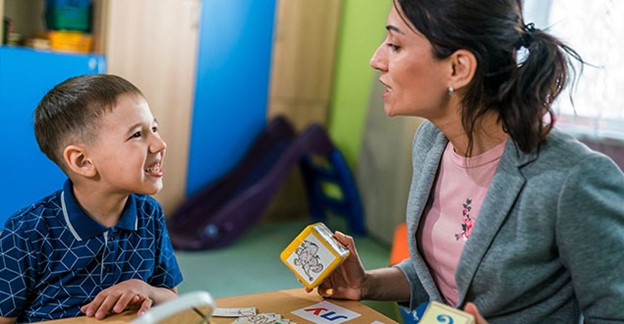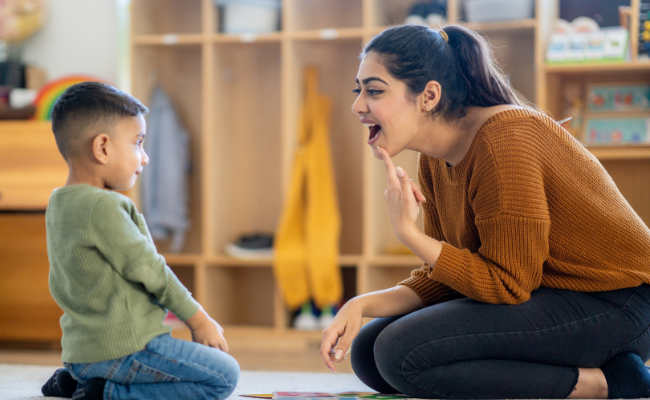Have you ever had a student thrive in your therapy room but struggle with communication in the classroom? For example, maybe they were able to express their basic wants when it came to choosing a toy or game to play in speech, but they couldn’t tell their teachers what they wanted to eat during snack time. Or maybe when it came to their target sounds, they were 90% intelligible going through your speech flashcards, but only 20% intelligible when naming classmates. It’s possible that a missing, and crucial, factor is the functionality of the goal and/or the approach. Let’s get FUNctional!
 Image source: https://www.readingrockets.org/article/21st-century-speech-language-pathologist-and-integrated-services-classrooms
Image source: https://www.readingrockets.org/article/21st-century-speech-language-pathologist-and-integrated-services-classrooms
First, let’s discuss what functional means. If an IEP goal is functional, that means it is meaningful and relevant to the child’s daily routine. We know that carrying over the skills learned in the therapy setting is essential in order for children to be successful - but how do we get there? How can we make sure that what they do with us can be applied to other environments? Bring in the wonders of functionality.
In the school setting, our students present with a need for speech and/or language therapy directly linked to academic impacts. Thus, we need to make sure that our goals are associated with functionality within the classroom setting. This is going to look different for each child as every individual has their own unique needs. A crucial component of targeting functionality is going to be that child’s interest or motivation. This is where the FUN comes in. For example, if you know the student is motivated by arts and crafts, food, play, games, or videos, you can embed your speech or language goals within these activities without them even realizing they are “working”. These kinds of activities can be incorporated into your approach as you work on goals that are functional for the child in the classroom setting. So, during an activity that piques their interest, instead of working on “who” questions like, “Who takes your money at the bank?” you can ask, “Who is your teacher?”
In conclusion, get to know your kiddos! Remember that what is functional to one student may not be functional to another. The goals you write for your students should help them develop the communication skills that are valuable to them in their daily lives. And what better way to get there than through some fun?
Author: Bryanna Molina M.A., CCC-SLPD


 Image source:
Image source: